Manchester at UKREiiF 2025 – Day Two Roundup
Day Two at UKREiiF 2025 saw Manchester’s continued leadership on innovation, regeneration, and devolution take centre stage. With a packed schedule of high-profile sessions, networking opportunities, and discussions, Greater Manchester reinforced its position as a region focused on sustainable development and creating impactful connections.
Here’ what happened on day 2 of UKREiiF:
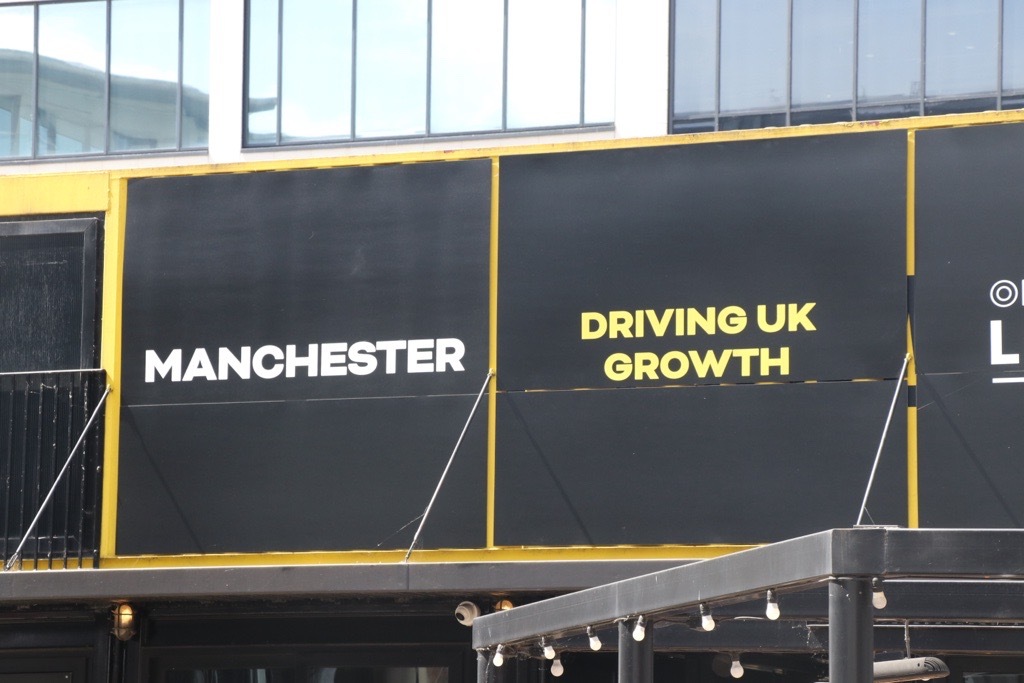
Early Morning Insights: Digital Marketing and Investment
The day began with an insightful discussion at the Asian and African Gallery, where Victoria Braddock, Managing Director of Marketing Manchester, attended the session How Can Digital Marketing Generate Greatest Value?
When asked how Marketing Manchester promote the city region, Victoria said ‘’Some say Manchester markets itself because we have such a strong sport and culture hub that reaches across b2b and b2c, the city region has something for everyone and has built a reputation for itself over the years’’
‘’With events like Chanel last year, the whole world was talking about Manchester. The impact of hosting huge events like that brings millions into the city and reaches audiences across the world’’
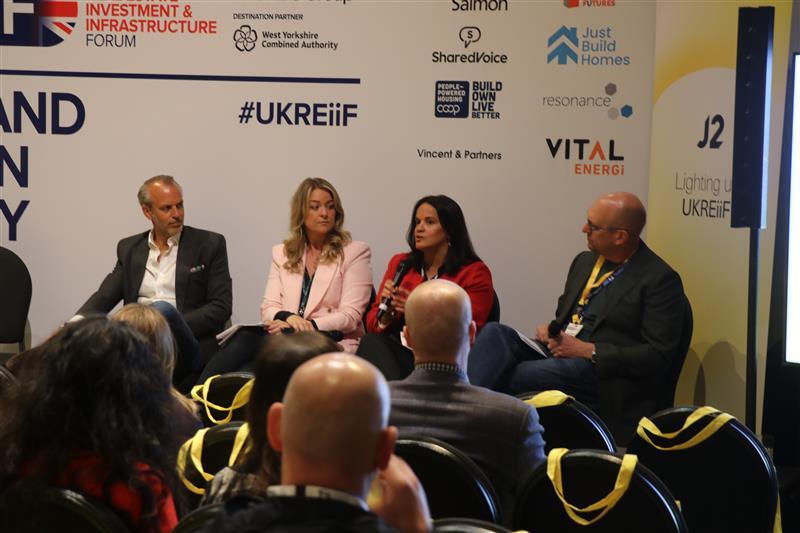
Future of Investment and Innovation
At 09:30, two major sessions took place, each with a distinct focus on Manchester’s role in driving future investment and innovation:
At the Dockside Pavilion, Cllr Bev Craig, Leader of Manchester City Council, joined Mike Hood, Chief Operating Officer of Landsec, for a forward-thinking conversation on The Future of Investment and Regeneration in the Great North. The session discussed The North’s cohesion and how the cities across the North of England can not only work together, but learn from each other.
Cllr Craig said: ‘’What we’ve done now is shift the dial on that narrative, we’re no longer talking about potential but achievements.
The pride in our area, the work ethic of our people and our depth of history is proof of why we’re the fastest performing economy in the Uk.’’
Meanwhile, at the Team Cambridgeshire and Peterborough Pavilion, Professor Lou Cordwell CBE, Professor of Innovation at the University of Manchester, explored the significant collaboration between Manchester and Cambridge in driving advancements in the science and tech sectors, with a focus on What The Cambridge and Manchester UK Innovation Partnership Means For The Science and Tech Industry.
Professor Cordwell said: ‘“The kind of partnership we’re building is about ecosystem connectivity across existing clusters - a real win for the UK, not just Greater Manchester and Cambridge.”
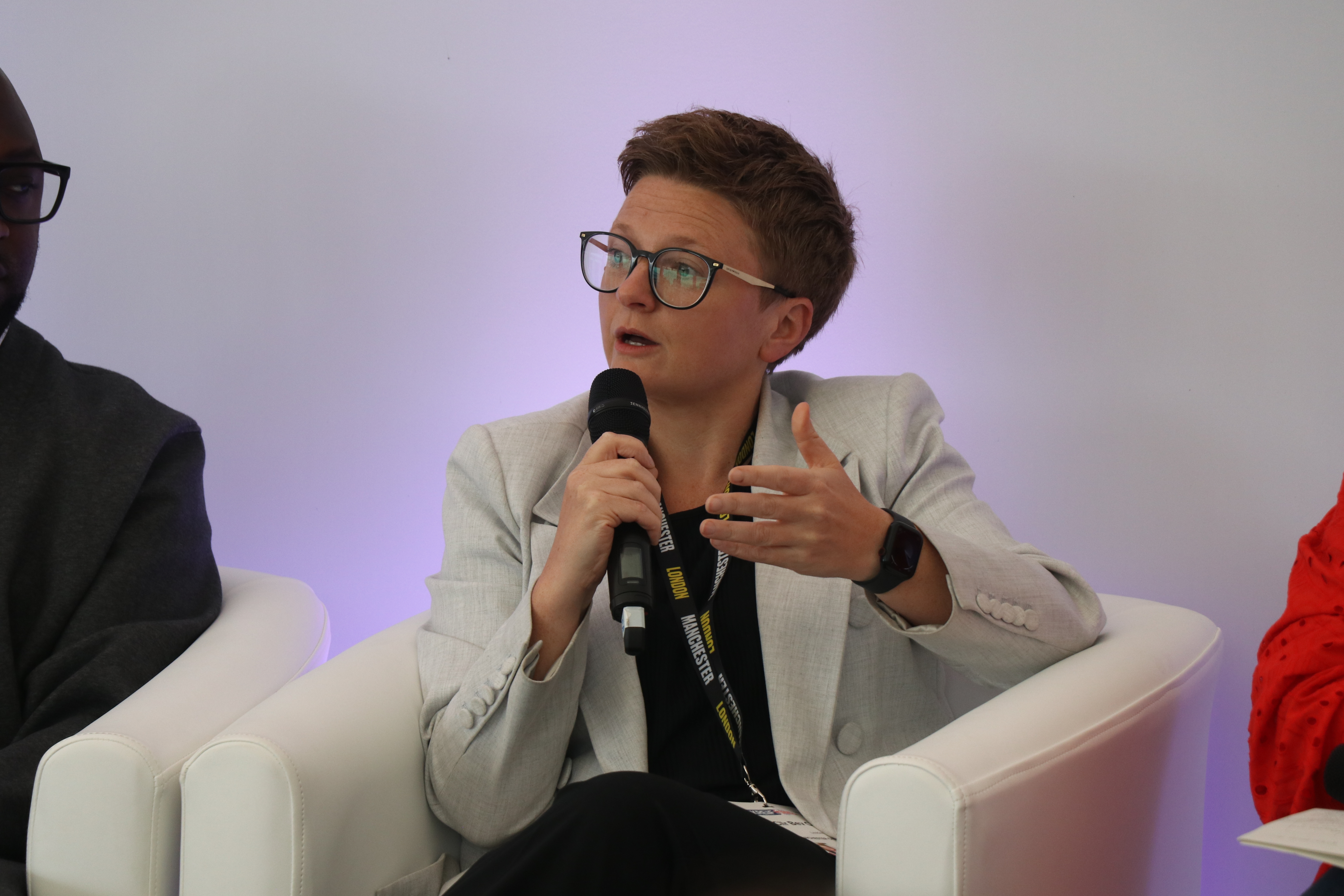
Exploring New Approaches: Transport and Devolution
Later that morning, Andy Burnham, Mayor of Greater Manchester, spoke on Exploring New Approaches to Transport Infrastructure in a ‘Decade of National Renewal’.
“It’s about how you break the cycle — the same one that keeps repeating, where money is spent in places where healthcare is already better.”
“Through devolution, we’ve built real infrastructure — like the Oxford Road Corridor. We believe Greater Manchester is becoming the UK’s leading city for clinical trials.”
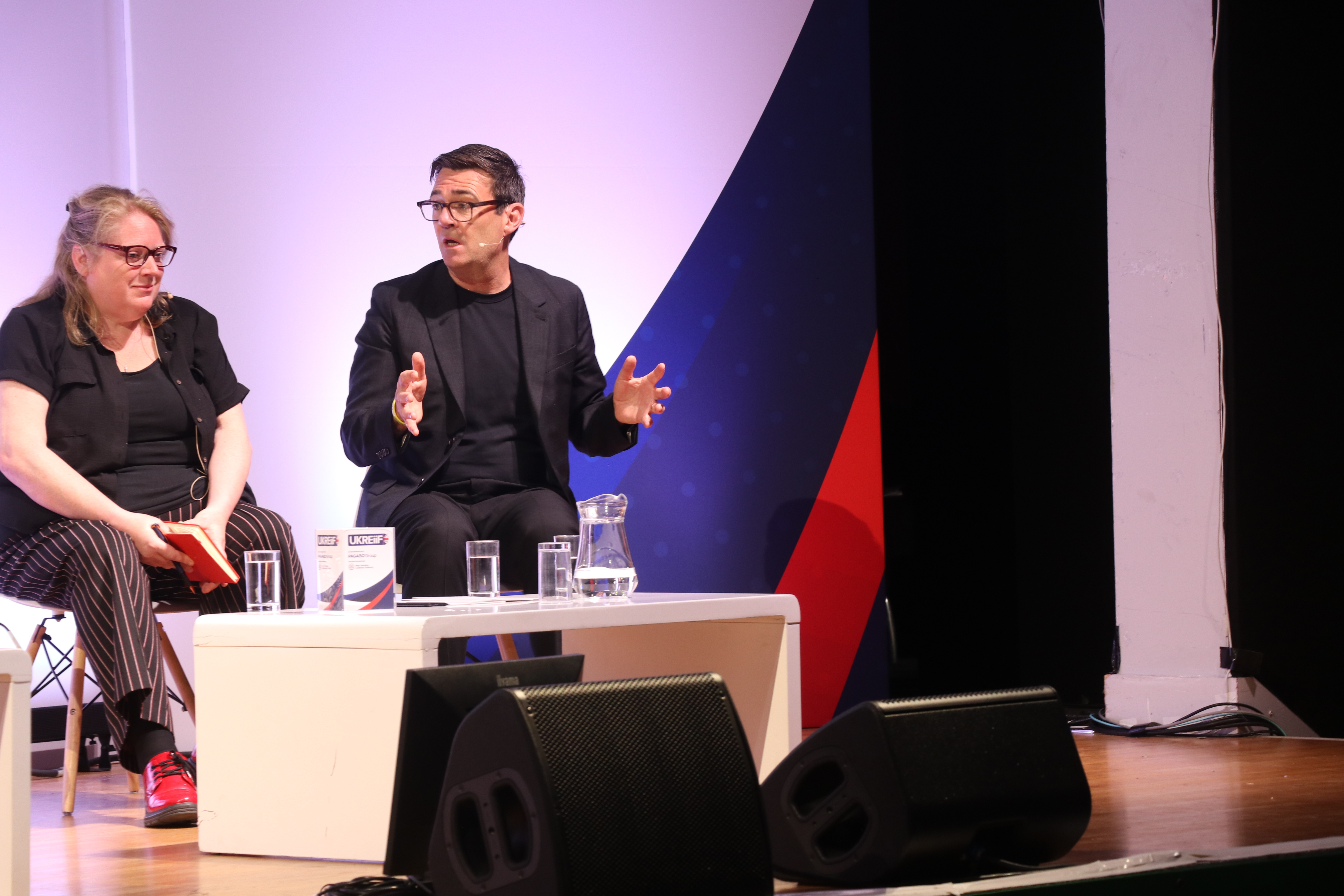
Driving Regeneration with Community at its Heart
After lunch, Manchester’s efforts on regeneration took centre stage in a session co-hosted by Muse and Manchester City Council at the Muse Stand. Muse and Manchester City Council have announced a partnership to deliver the first phase of the civic area regeneration with around 400 houses planned, starting at the end of next year.
David Lynch, Director of Strategic Development at Manchester City Council, and Joe Stockton, Senior Development Manager at Muse, discussed the "Once-in-a-Generation Opportunity to Drive Regeneration with Community at its Heart".
David said: “The biggest aim is to understand the needs of Wythenshawe — and make sure our economic growth plans truly reflect and support that reality.”
“Muse and Manchester City Council have partnered to deliver the first phase of civic area regeneration, with around 400 homes, breaking ground by the end of next year.”
Kirstine Armitage, Strategic Lead - Growth & Delivery - Greater Manchester Combined Authority, said:
“Wythenshawe is a distinct community — whatever we do must reflect and strengthen that identity.”
“The existing community wants to know: how will this benefit us? By dedicating a strong social framework, we can better understand the needs and opportunities for lasting change.”
“It’s crucial that the civic space suits the character of the area. We’re accountable to make sure these projects deliver and that the community sees meaningful change.”
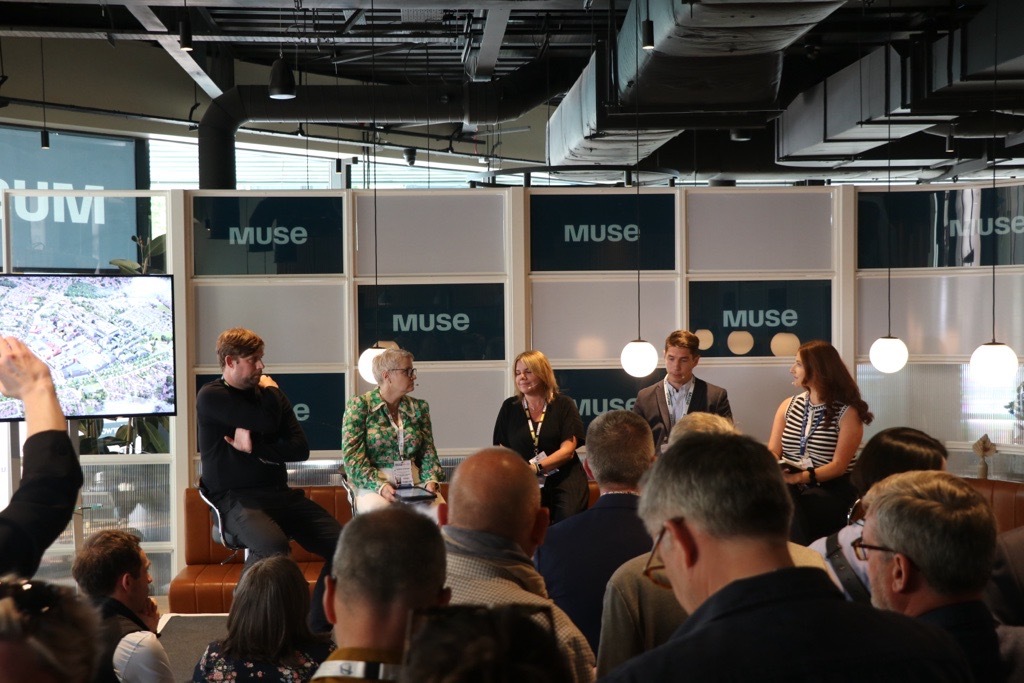
Placemaking for People and the Planet
At 15:15, Becca Heron, Strategic Director of Growth and Development at Manchester City Council, took part in the "Placemaking For People and the Planet" session at the North East Pavilion, discussing how placemaking can be a powerful tool for both people and environmental sustainability.
“When a supportive framework benefits the council, the community, and developers, it brings brand new resilience to an area because you're looking at it from every angle.”
“We’re engaging with communities through the social value framework, not just about the end result, but about what they want throughout the whole process.”
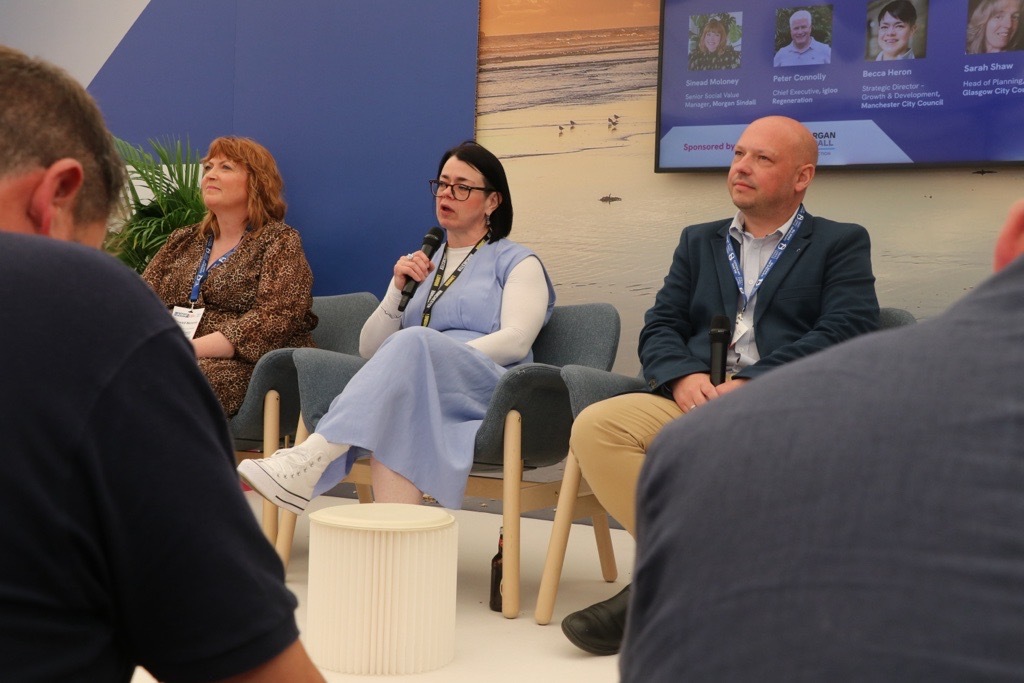
Networking and Evening Engagements
The evening began with two prominent networking opportunities. The Manchester and Opportunity London Drinks Reception at The Canary provided a relaxed setting for further partnership building.
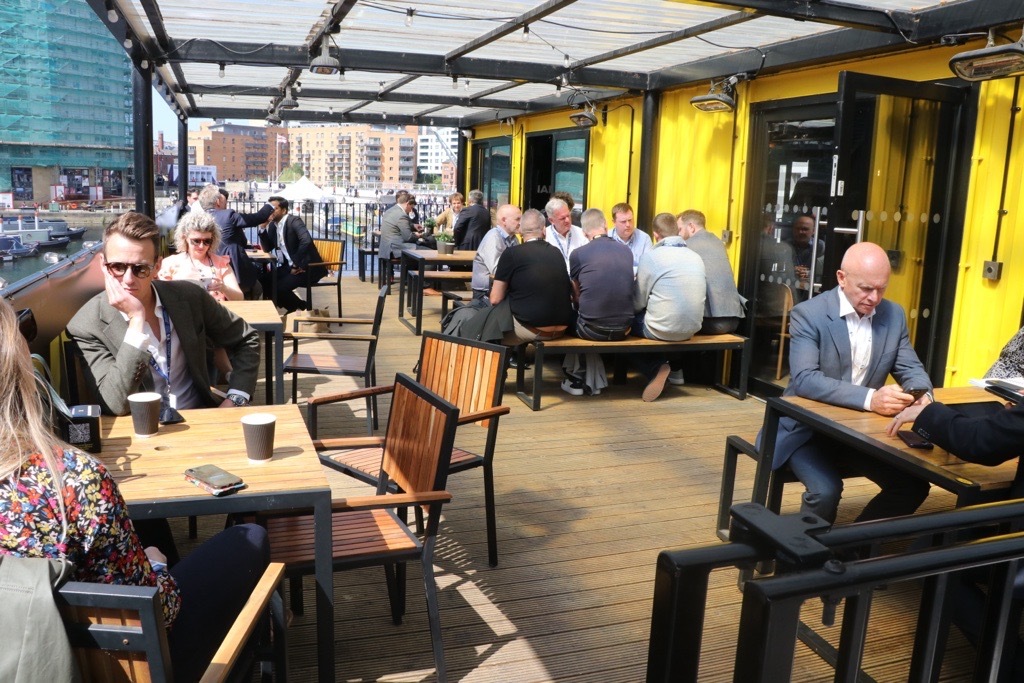
Evening Celebration: The UKREiiF Afterparty
To close the day, the UKREiiF Afterparty: DJ Battle for Regeneration Brainery at the O2 Academy, Leeds, from 20:00–23:30, was a lively and charitable celebration. Andy Burnham, Mayor of Greater Manchester, participated in a DJ battle alongside other Metro Mayors, all in aid of Regeneration Brainery, UKREiiF’s official charity partner.
Day Two of UKREiiF 2025 showcased the diverse and impactful initiatives led by Greater Manchester. The region's commitment to driving innovation and fostering community-led growth was clear with sessions focused on digital marketing, devolution, regeneration, and sustainable placemaking.
Stay tuned for more updates as Manchester continues to make waves at UKREiiF 2025